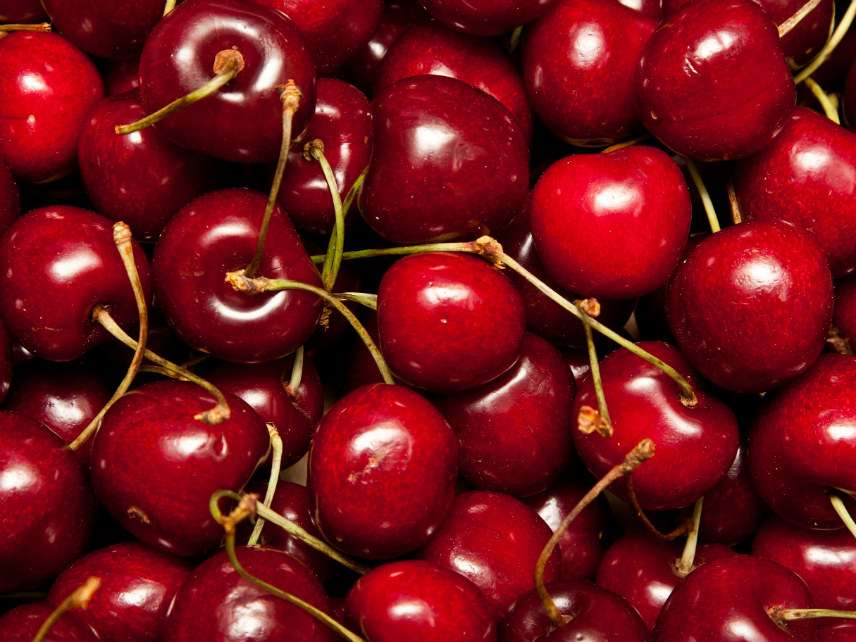Trump's Trade War Targets Second-Most-American Pie Filling
Cherry growers get hit with steep tariffs right in the middle of their harvest season.

President Donald Trump's trade policies are leaving no iconic American industry unscathed. Having scared away motorcycle manufacturers and eaten into the profits of the country's brewers, he now threatens another cherished American product: the cherry.
On Friday, the Trump administration levied tariffs on some $50 billion of Chinese goods, including everything from x-ray tubes and aircraft tires to ultrasound machines and agricultural equipment. China retaliated with its own tariffs on imported Americans cars, meats, and produce.
The most immediate victims of this breakdown in trans-Pacific trade are the agribusinesses who risk being cut off from their best export market.
"Every time there is a trade friction, the first thing that gets hit with retaliatory tariffs are the fresh products," says Steve Reinholt, export sales director for the Washington-based agricultural export company Oneonta. "We pack and ship things within 48 hours. If you have a bit of a slowdown, it can effect things quickly."
Hardest hit, says Reinholt, are the cherry growers his company buys from, who over the past decade had been doing steadily increasing business with China.
As recently as 2005, the U.S. sold almost no cherries to China. Last year, the country was the largest foreign buyer of the fruits. Of the 20 million 20-pound boxes of cherries produced in the U.S. in 2017, 3.2 million went to China.
Those numbers will not be matched by this year's sales, says B.J. Thurlby of Northwest Cherry Growers, a trade association. He puts the blame squarely on the new tariffs.
"We're very much expecting to have less volume to China this year," says Thurlby. "Historically we would ship two million boxes in July alone. There's just no way we see that happening this year, not with the amount of tariffs we're talking about."
Exporting to China had always been a challenge for the 2,500 or so Pacific Northwest growers that Thurlby's organization represents. In the past, these growers have had to contend with a flat 10 percent import tax as well as a 13 percent value added tax.
Trump's trade policies have only made things worse.
In response to the U.S.'s protectionist drift, China has upped tariffs on U.S. produce twice in the last three months, once in April and again last week, getting us to the 50 percent tariffs growers now have to pay.
Chinese officials have other means of making agricultural exporters' lives miserable, too. All fresh produce entering the country has to be inspected, and Chinese authorities have been known to hold fruits and vegetables at ports until they rot.
California cherry growers report that Chinese authorities have held shipments five days for inspections. More such tactics could be on the horizon should trade relations between the two countries deteriorate further.
Fortunately, says Reinholt, this year has seen a smaller, high-quality crop of cherries and robust domestic demand, so growers can survive a brief trade spat. But "if it continues or gets worse between now and next season, that could be a real problem."
Thurlby agrees. Cherry growers require good years of high profits to offset leaner seasons where low prices see farmers break even or not even harvest at all. "We need every market, every year to stay viable," he says.
The outbreak of a trade war with no end in sight has left growers feeling like their industry is being ignored—or, worse, sacrificed for wider trade objectives.
"Unfortunately, I don't think that cherries are part of the big picture or even on the radar," says Thurlby. "I have 2,400 frustrated growers across five states that aren't happy with the direction of these trade wars at all."
Rent Free is a weekly newsletter from Christian Britschgi on urbanism and the fight for less regulation, more housing, more property rights, and more freedom in America's cities.


Show Comments (42)